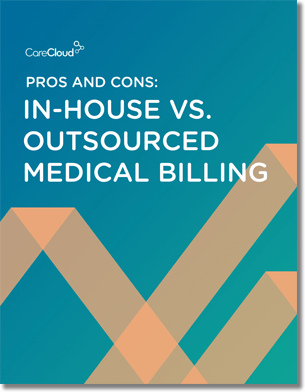Providers are exceptional at providing care. If there is one area that they find challenging, it is medical billing. With so many regulations and codes, a myriad of jargon and rules could confuse anyone. Coordination of Benefits (COB) is another terminology used in healthcare. In this article, we will walk you through the meaning of coordination of benefits and the process and rules involved.
What is Coordination of Benefits?
Coordination of Benefits (COB) is a process to streamline medical billing services. It helps avoid duplication of coverage and overpayment. Some patients may have more than one source of health insurance coverage. Coordination of benefits (COB) helps healthcare insurance providers determine their payment responsibilities or the percentage a plan contributes to the range if there is more than one payment plan. Simply put, coordination of benefits helps payers determine which health insurance plans are primary and which are secondary. Naturally, the primary health insurance plan pays first. If there are any additional expenses that need to be covered, then the secondary health insurance plan provides extra coverage. In this case, there is still some coverage left after using the secondary and primary healthcare plans; the patient pays out of pocket for those expenses. The term “covered services” refers to the medical treatment, supplies, labor, or medications that insurers offer as part of the benefits of their plans.
Why is Coordination of Benefits Important?
Coordination of Benefits (COB) is necessary when an individual is signed up on two plans. Some common examples for requesting coordination of benefits are:
- When an individual is under 26 and under their parent’s plan and covered by their employer’s policy.
- When a person has a marketplace plan as well as an additional plan.
- When more than one guardian or parent covers a child.
- When an individual is covered under their spouse’s plan as well as their employer’s policy.
- When an individual has Medicare or Medicaid and is covered by a commercial insurance plan.
Care coordination helps ensure that the medical billing process is easier for patients. When a patient requests coordination of benefits, the primary insurance provider will take care of the treatment expenses first. As stated before, if there are any other expenses, they will be taken care of by the secondary provider. This ensures that there is no way to receive double benefits from more than one insurance company. It helps reduce the cost of insurance premiums and avoid any situation where the patient has to pay out of pocket due to a lack of coordination between payers. Using coordination of benefits also allows providers to determine which policy should be billed, primary or secondary.
Coordination of Benefits Rules
The rules for Coordination of Benefits (COB) vary depends on the place you live, the state you are listed in and most importantly, the type and size of your insurance plans. Some employers may have their own rules set. However, there are some rules that are common:
- If a patient has more than one health insurance provider, CMS only pays the remaining payable amount. Depending on the situation. Medicare can even be a primary or secondary payer. If the other provider is a small business, it can be the primary provider too.
- When it comes to the case of spouses, spouses can have separate insurance plans as well. In such a situation, your employer’s insurance policy would become the primary plan and your spouse payer will be secondary.
- Veterans Administration (VA) is not considered a health insurance plan by CMS. They submit claims for supplies, prescriptions, services, and treatment to public or commercial health insurance companies. If you have VA plan, you must rely on your spouse’s medical insurance plan as your plan.
- If an employee is covered by an employer, then their compensation package becomes primary and any other payer, whether Medicare or any other insurance company, becomes secondary.
- Military coverage is a secondary healthcare plan. It is the primary payer for the Tricare Supplement, certain federal government programs, and state crime compensation programs. If a member of the military is injured, military coverage is the only alternative available to them.
Conclusion
In the intricate world of outsource medical billing, coordination of benefits stands as a crucial process for ensuring fair and efficient payment processes. IT contributes to a more streamlined and cost-effective healthcare system. Coordination of benefits is a part of a complicated medical billing process. CareCloud provides efficient medical billing services that helps providers navigate through the medical billing landscape and maximize reimbursements.



